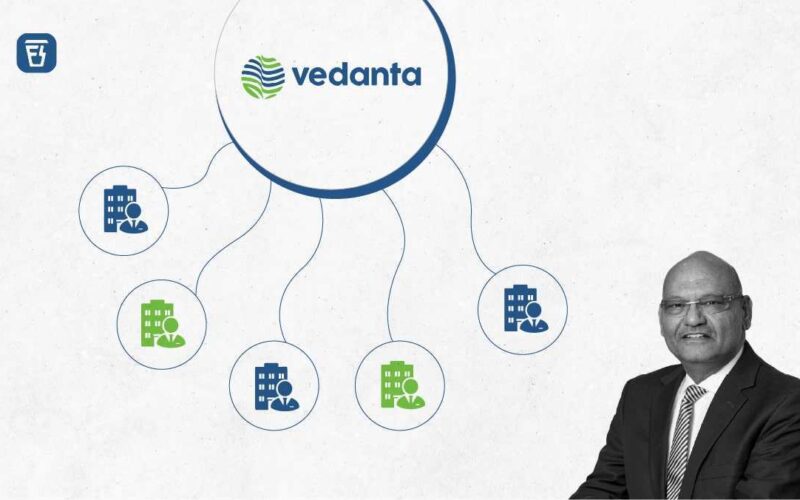#Vedanta #ViceroyResearch #DYChandrachud #CorporateGovernance #ShortSelling #MarketManipulation #VedantaGroup #CRISIL #ICRA #JPmorgan #BankofAmerica #Barclays #StockMarketIndia #InvestorConfidence #LegalOpinion
Mumbai: Vedanta Limited has come out strongly against a recent report by US-based short-seller Viceroy Research Group, backed by a comprehensive legal opinion from former Chief Justice of India (CJI) Dr. D.Y. Chandrachud. The 20-page opinion, which the company has filed with the stock exchanges, states that there is “no wrongdoing” by Vedanta and questions the very credibility of the Viceroy report, calling it defamatory and market manipulative.
The legal opinion, accessible on Vedanta’s official website, describes the Viceroy report as “designed to manipulate the market for unlawful financial gain”, and asserts that it would not withstand judicial scrutiny under Indian law. The former CJI further indicated that Vedanta would be “well placed to approach Indian courts for remedies related to defamation and reputational harm.”
Questioning the Viceroy Report
Dr. Chandrachud’s opinion raises serious concerns about the authenticity, motivation, and timing of the report. He notes that the “dubious credentials of the researchers” behind the publication raise immediate questions about its reliability. There is also reference to ongoing litigation against Viceroy globally for similar reports targeting other companies.
The report’s timing appears suspicious, coinciding with Vedanta’s positive credit momentum and successful refinancing efforts, as well as its proposed corporate demerger. According to the opinion, such timing is likely deliberate, aiming to disrupt market confidence just as Vedanta is poised for structural and financial growth.
Three Reasons Why the Report Lacks Credibility
The opinion outlines three main reasons for dismissing the Viceroy report:
- Track Record of Short-Selling: Viceroy has a history of releasing negative reports to profit from falling stock prices.
- Dubious Research Credentials: The authors lack transparency and have faced legal challenges globally.
- Strategic Timing: The report’s release coincides with Vedanta’s demerger plan, which could potentially trigger a stock price rally, causing losses for short-sellers.
Dr. Chandrachud also criticized the “inflammatory and defamatory language” used in the report, stating that such language aims to sensationalize rather than present an objective assessment of facts.
Viceroy’s Alleged Modus Operandi
The former CJI’s analysis suggests that Viceroy follows a predictable strategy:
- Taking short positions in the target company’s stock or bonds.
- Publishing a so-called “research report” built on distorted public information, with no independent verification.
- Profiting from the panic and resulting fall in stock prices.
In Vedanta’s case, Dr. Chandrachud emphasized that such a strategy not only attempts to damage the company’s corporate credibility but also undermines broader market integrity.
Vedanta’s Regulatory Standing
The opinion highlights that Vedanta operates under a robust and multi-layered regulatory framework designed to ensure compliance and ethical conduct. Dr. Chandrachud pointed out that there are no adverse findings from any regulator or credit rating agency against the company. He stated:
“Given the absence of verified evidence and the fact that much of the information in the report is drawn from public disclosures, it does not, on its face, disclose any credible basis for regulatory action or investigations.”
The former CJI further noted that malicious and misleading reports such as Viceroy’s seek to erode investor confidence in India’s corporate governance standards.
Industry and Investor Support
Despite the release of the Viceroy report, global brokerage firms such as JP Morgan, Bank of America, and Barclays have maintained their positive ratings on Vedanta Group entities, citing the company’s improving credit profile, strong operational fundamentals, and attractive valuations.
In addition, leading rating agencies CRISIL and ICRA have reaffirmed their credit ratings for Vedanta. CRISIL continues to assign an AA rating for Vedanta and AAA for Hindustan Zinc Ltd, while ICRA has maintained its AA rating for Vedanta, signaling sustained confidence in the group’s financial stability.
Impact on Market Sentiment
Analysts believe that while short-seller reports can create temporary volatility, long-term investors are likely to focus on fundamentals rather than speculative claims. Vedanta’s refinancing success, strategic demerger plans, and improved credit standing are expected to overshadow the negative noise generated by the Viceroy report.
Market experts also suggest that legal opinions from highly respected figures like Dr. Chandrachud carry significant weight and may reassure investors of Vedanta’s commitment to transparency, governance, and compliance.
Conclusion
Dr. Chandrachud’s legal opinion underscores the importance of protecting corporate reputation from unsubstantiated attacks by short-sellers. By highlighting the questionable motives and lack of evidence behind the Viceroy report, the former CJI has effectively provided Vedanta with a strong legal and moral defense.
The controversy may temporarily cloud investor sentiment, but Vedanta’s strong fundamentals, regulatory track record, and backing from global institutions suggest that the company is well-positioned to weather the storm.
#Vedanta #ViceroyResearch #DYChandrachud #CorporateGovernance #ShortSelling #MarketManipulation #VedantaGroup #CRISIL #ICRA #JPmorgan #BankofAmerica #Barclays #StockMarketIndia #InvestorConfidence #LegalOpinion

